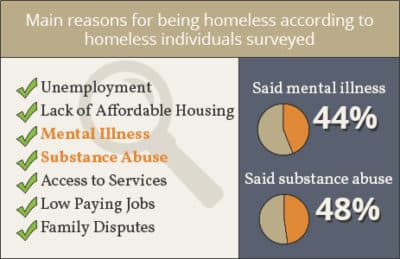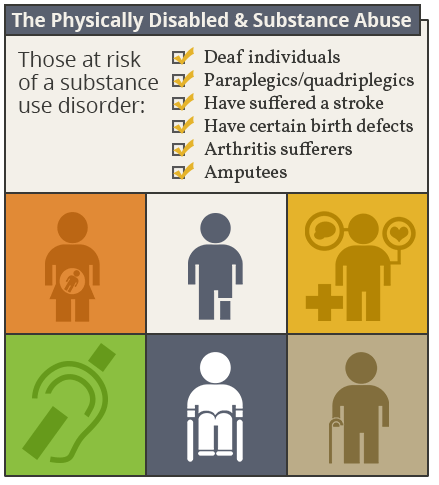Although there's no cure for drug addiction, treatment alternatives explained below can help you get rid of a dependency and remain drug-free. Your treatment depends upon the substance abuse and any associated medical or psychological health disorders you might have. Long-lasting follow-up is crucial to prevent relapse. Treatment programs normally offer: Person, group or household treatment sessions A focus on comprehending the nature of dependency, becoming drug-free and preventing relapse Levels of care and settings that differ depending on your requirements, such as outpatient, domestic and inpatient programs The goal of detoxification, also called "detox" or withdrawal therapy, is to enable you to stop taking the addictive drug as quickly and safely as possible.
Others may need admission to a medical facility or a residential treatment center. Withdrawal from different classifications of drugs such as depressants, stimulants or opioids produces various side effects and needs different methods. Detox might involve gradually minimizing the dose of the drug or temporarily substituting other compounds, such as methadone, buprenorphine, or a mix of buprenorphine and naloxone.
Naloxone temporarily reverses the effects of opioid drugs. While naloxone has been on the marketplace for several years, shipment systems such as Narcan (a naloxone nasal spray) and Evzio (a naloxone injection gadget) are now offered, though they can be very pricey. Evzio is a little injection device that provides voice instructions to assist the user and automatically insert the needle into the thigh to provide the naloxone injection.
As part of a drug treatment program, habits therapy a kind of psychiatric therapy can be done by a psychologist or psychiatrist, or you might receive counseling from a certified alcohol and drug counselor. Treatment and therapy might be finished with a private, a family or Addiction Treatment a group. The therapist or counselor can: Help you develop ways to deal with your drug cravings Suggest strategies to prevent drugs and prevent regression Deal suggestions on how to Addiction Treatment Center handle a regression if it happens Discuss issues concerning your job, legal problems, and relationships with household and friends Include member of the family to help them establish much better interaction skills and be supportive Address other psychological health conditions Numerous, though not all, self-help assistance groups utilize the 12-step model very first developed by Twelve step programs.

The self-help assistance group message is that dependency is a persistent disorder with a threat of regression. Self-help support system can decrease the sense of embarassment and isolation that can lead to relapse. Your therapist or licensed therapist can assist you find a self-help support system. You might likewise discover support system in your neighborhood or on the web.
Everything about When An Adolescent Comes For Addiction Treatment
Knowing new coping abilities and understanding where to discover assistance are important. Taking these actions can assist: Drug addiction is linked to a variety of problems that might be aided with treatment or therapy, including other underlying mental health concerns or marriage or family issues. Seeing a psychiatrist, psychologist or licensed counselor may assist you restore your peace of mind and repair your relationships.

Seek immediate treatment from a qualified psychological health expert if you have any signs or signs of mental illness. Assistance groups, such as Narcotics Anonymous or Alcoholics Anonymous, can be very reliable in handling addiction. Compassion, understanding and shared experiences can help you break your addiction and remain drug-free.
You can start by discussing your compound usage with your primary medical professional, or request a recommendation to an expert in drug dependency, such as a certified alcohol and drug therapist, or a psychiatrist or psychologist. Take a relative or good friend along (what is drug addiction treatment). Here's some details to help you prepare yourself for your consultation.
To get an accurate concept of which treatment might help, be sincere with your medical professional or other mental health expert. that you're taking, and the dosages. Tell the medical professional about any legal or unlawful drugs you're utilizing. your medical professional or mental health specialist. Some questions to ask your doctor may consist of: What's the very best method to my drug dependency? Should I see a psychiatrist or other psychological health specialist? Will I require to go to the medical facility or hang around as an inpatient or outpatient at a recovery clinic? What are the alternatives to the primary approach that you're recommending? Are there any sales brochures or other printed product that I can have? What websites do you recommend? Don't hesitate to ask other questions throughout your appointment.
Be ready to address them to reserve time to discuss any points you wish to concentrate on. Your medical professional may ask: What drugs do you use? When did your drug use first start? How frequently do you utilize drugs? When you take a drug, how much do you utilize? Do you ever feel that you might have a problem with drugs? Have you attempted to quit on your own? What happened when you did? If you tried to give up, did you have withdrawal symptoms? Have any family members criticized your substance abuse? Are you ready to get the treatment required for your drug addiction? Oct.
Some Known Facts About Why Is Methadone Used As A https://writeablog.net/elwinneo5i/part-of-being-reasonable-is-accepting-slip-ups-as-part-of-the-healing-procedure Treatment For Heroin Addiction?.
Drugs and Alcohol Can Hijack Your BrainPeople with addiction lose control over their actions. They crave and look for drugs, alcohol, or other compounds no matter what the costeven at the threat of damaging friendships, harming household, or losing jobs. What is it about addiction that makes individuals act in such harmful ways? And why is it so hard to give up? NIH-funded scientists are working for more information about the biology of dependency.
However even for those who have actually successfully stop, there's constantly a threat of the dependency returning, which is called relapse. The biological basis of addiction helps to explain why individuals require far more than excellent intentions or self-discipline to break their addictions. "A typical misperception is that addiction is a choice or ethical problem, and all you need to do is stop (what is holistic treatment for drug addiction).
George Koob, director of NIH's National Institute on Alcoholic Abuse and Alcohol Addiction. "The brain actually changes with dependency, and it takes a great offer of work to get it back to its typical state. The more drugs or alcohol you have actually taken, the more disruptive it is to the brain." Scientists have discovered that much of addiction's power depends on its capability to pirate and even destroy key brain regions that are suggested to assist us make it through.
It does this by switching on brain circuits that make you feel fantastic, which then encourages you to repeat those behaviors. In contrast, when you're in danger, a healthy brain pushes your body to react rapidly with worry or alarm, so you'll leave harm's way. If you're lured by something questionablelike eating ice cream before dinner or buying things you can't affordthe front regions of your brain can help you decide if the effects deserve the actions.
Drugs or alcohol can pirate the pleasure/reward circuits in your brain and hook you into desiring a growing number of. Addiction can likewise send your emotional danger-sensing circuits into overdrive, making you feel anxious and stressed when you're not using the drugs or alcohol. At this stage, individuals typically utilize drugs or alcohol to keep from feeling bad rather than for their pleasurable impacts.